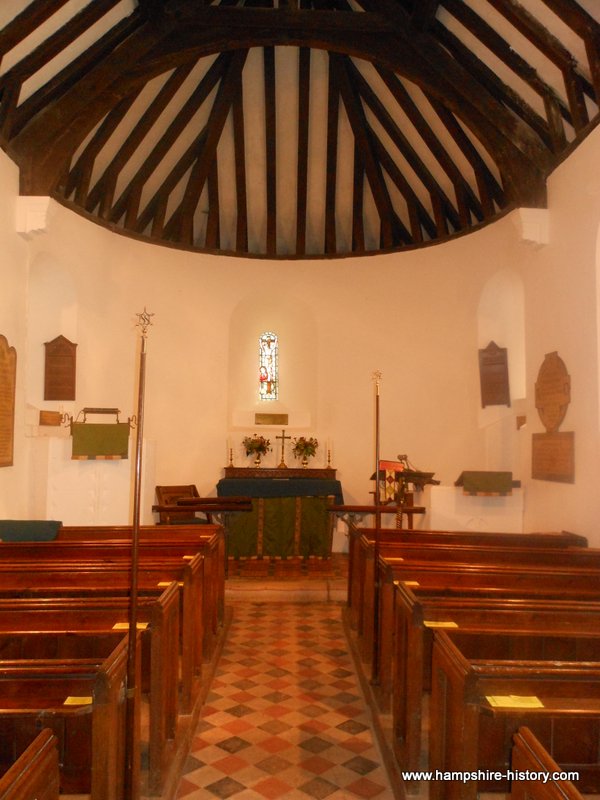The church of St Swithun is home to the mermaid of Nately Scures, as well as being the most perfect example of a Norman apsidal church in the country
The church at Nately Scures is a striking example of Norman architecture, small but perfect with a nave that is only thirty feet in length. It is an aisle- less church with its eastern end forming an aspe some sixteen feet in diameter. This is a rare thing and only one of a handful to be found in England. Take a look at the above photograph and note how the window in the aspe is not central to it but positioned in a north easterly direction.
The only way into the church is via a north door, again an unusual feature in Hampshire churches but it is not the only unusual aspect of the beautifully carved Norman doorway. On the eastern capital, the Mermaid of Nately Scures looks the visitor in the eye, with her long hair flowing and mingling with the wave crashing over her, she seems to carry on her back a small figure.
The Legend
The unusual carving of a mermaid has obviously brought with it its fair share of stories as to how it came to be carved here. Legend tells us that a sailor had a love affair with a mermaid and left her to return home. He met and fell in love with a lady from Nately Scures and was set to marry her, when up the River Thames and thence the Loddon and the Lyde arrived at the church and stole him away on her back. The mermaid was carved supposedly to act as a warning to young men who might dally with a young ladies heart.
Another story from just after the English Civil War, tells us of the love that sustained the lives of a husband and wife
A brass plaque now difficult to read relates a conversation between a husband and his wife, Mary died in 1660 and her husband John in 1661 and this is their epitaph;
Here lies John Palmer and Mary his wife
Prisoners of hope to eternal life
John then says to Mary;
Mary make room
To thee I come
And my last home
Till the day of Doom
Then shall we wake, rise, live for aye
With Christ a never dying day
Mary then replies;
I went before
To ope the door
I could not stay
But now give way
Come then my dear, we’ll sleep in bliss
And in the dust each other kiss
And then the most beautiful of testaments to their love, they jointly tell us;
Twice sixteen years we lived together
In sunshine and in stormy weather
In wedlock bands husband and wife
In joy, love, peace, void of all strife
And ten times changed our habitation
And here at last we fixed our station,
Where after ten years spent we have
Obtained at last a quiet grave



